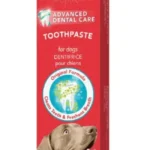Feeding your furry friend is a crucial aspect of pet care, but it’s not always straightforward. One common question many dog owners ask is – “Should I give my dog a treat before bed?” Here is what the experts have to say about whether this is a good idea.
What Are Dog Treats?
Dog treats are supplemental food given to dogs, typically for reinforcement during training or as a reward for good behavior. They come in a variety of forms, including biscuits, chews, soft bites, and even certain fruits or vegetables. Treats are designed to entice your canine companion, often featuring flavors like beef, chicken, or peanut butter.
Why Do We Give Our Dogs Treats?
We give our dogs treats for several reasons. Primarily, they serve as an instrumental tool for positive reinforcement training. Providing a treat as a reward encourages your dog to repeat desired behaviors. Additionally, treats can aid dental health, especially certain types designed to clean a dog’s teeth or improve breath. Treats that contain coconut oil majorly help clean dog’s teeth.
Lastly, they serve as a way for dog owners to express affection towards their furry friends. Despite their benefits, it’s worth noting that treats should not replace a balanced diet and should be given in moderation, as they can lead to health issues such as obesity if overused.
Why You Need to Understand Your Dog’s Dietary Needs Before Feeding Them Treats
Understanding the dietary needs of your furry friend is crucial for their overall health and well-being. A balanced diet with the right amount of nutrients helps to keep your dog’s weight under control, preventing health issues such as obesity and associated complications.
Similar to humans, dogs have specific dietary needs that vary based on age, size, breed, and health status. As such, feeding your dog once a day or indiscriminately handing out treats could lead to weight gain and associated health problems.
When treating your dog to a snack before bed, it is essential to ensure they have enough time to digest their food before they fall asleep. Treats should always be a part of their overall diet and should be healthy and low in fat and sugar.
Opting for a good bedtime snack is not just about making your dog happy; it is also an excellent opportunity to supplement their diet with added nutrients. This can help them feel satisfied and relaxed before bedtime.
Treats Before Bedtime: Studies, Pros and Cons
Before discussing the advantages and disadvantages, let us first see what studies say about whether you should give a dog treats before bed.
Studies on Feeding Dogs Treats Before Bed
Scientific research on the effects of giving dogs treats immediately before bedtime is limited. However, some studies provide insights into canine digestion and sleep patterns that can be applied to this topic.
One study conducted by the Journal of Veterinary Behavior found that the time of feeding can influence a dog’s circadian rhythm, specifically their active and resting periods. This implies that feeding your dog, even small treats, late in the evening could disrupt their sleep.
Another research study in the Journal of Small Animal Practice discussed the impact of diet on a dog’s sleep patterns. While not specifically investigating treats before bedtime, it suggested that dietary changes can lead to changes in sleep patterns. Therefore, if a dog is not used to receiving a treat before bed, introducing one could potentially disrupt its sleep.
Yet another study from the Journal of Nutritional Science indicated that the type of food can significantly affect a dog’s health. Foods high in fat can lead to obesity and other health issues, indirectly impacting a dog’s sleep quality.
Unfortunately, no direct research is specifically on giving dog treats before bed. Nevertheless, the existing studies suggest that it’s essential to consider the type of treat, the size, and the timing. It’s always best to consult your vet to determine what will work best for your pet.
The Benefits: Bedtime Routine and a Good Night’s Sleep
On the flip side, a treat before bed can be a great way to establish a bedtime routine for your pet. A small snack may help your dog feel full and content, making it easier for them to fall asleep.
While the risks of late-night dog treats are notable, it’s essential also to consider the potential benefits. A well-timed and carefully selected treat can, in fact, play a positive role in your dog’s bedtime routine and overall health.
- Establishing Routine
Dogs thrive on routine. A small, healthy nighttime treat can signal your dog that it’s time to calm down and get ready for bed. This can be particularly beneficial for restless dogs or having difficulty settling down at night.
- Promoting Good Sleep
Some research suggests that a small snack before bed may help your dog sleep better, as it could help prevent hunger pangs during the night. A dog with a comfortably full belly may be likelier to sleep through the night and less likely to engage in disruptive behaviors like whining or scratching at the door.
- Strengthening the Bond
Finally, giving your dog a treat before bed can be a wonderful bonding experience. This quiet moment can become a cherished ritual, providing a calm, loving end to the day that strengthens your relationship with your furry friend.
With these potential benefits in mind, it’s crucial to remember that the treat’s type, size, and timing are key factors to consider. A small, low-calorie, easy-to-digest treat is the optimal choice for a bedtime snack. Always consult your veterinarian to determine what would be the most appropriate choice for your specific dog.
The Risks
Typically, dogs should eat hours before bedtime. Most dog eats once a day, a few hours before bedtime. This gives your pet plenty of time to digest their food and prevents the risk of specific health issues related to late-night snacks. Feeding your dog a treat before bed may seem like a harmless act of affection, but it can pose several health risks.
- Weight Gain
The most immediate concern is weight gain. Much like humans, dogs are susceptible to obesity when they consume more calories than they burn. Late-night treats can contribute to a calorie surplus, especially if the treats are high in fat or sugar. This excess weight can lead to various related health issues, including heart disease, diabetes, and joint problems.
- Digestive Problems
Another risk is the potential for upset stomach or digestive issues. Eating a substantial treat right before bed leaves little time for digestion. This can result in discomfort during the night, disrupting your pet’s sleep and potentially leading to more serious gastrointestinal problems over time.
- Dental Issues
Moreover, certain types of treats may contribute to dental issues. Chewy or sticky treats can lodge in your dog’s teeth, and without proper dental hygiene, this can promote the growth of bacteria and lead to oral health problems, including tooth decay and gum disease.
- Dependency
Lastly, while a bedtime treat might initially seem like an excellent way to coax a stubborn pet into its sleeping area, it can lead to dependency issues. If your dog associates sleeping with getting a treat, they may refuse to sleep without one.
In light of these potential risks, it’s crucial to consider your dog’s overall diet and health condition before incorporating bedtime treats into their routine. It’s always best to consult with a veterinarian for personalized advice.
Choosing a Good Bedtime Snack
If you decide to treat your dog before bed, choosing something healthy is crucial. Avoid high-calorie treats and opt for something low in fat and easy to digest. Consider options that are nutritious and low in calories. For instance, a small piece of plain, cooked chicken or turkey can be an excellent choice, as they are high in protein and easy to digest.
Similarly, baby carrots or apple slices are low-calorie options that most dogs enjoy and are also beneficial for their dental health. If you prefer commercial treats, opt for those specifically made for dogs, ensuring they are low in fat and free from harmful additives, like lean treats.
Remember, it’s essential to keep portion sizes small to prevent excessive calorie intake. As always, it’s recommended to consult with your vet before introducing any new food into your pet’s diet.
The Worst Bedtime Treats for Dogs: What to Avoid and Why
Not all treats are created equal when it comes to feeding your dog. Certain snacks can be detrimental to your furry friend’s health, especially when given as bedtime treats. Here are some of the worst options and why they should be avoided:
- High-Fat and Sugary Treats
Fatty, greasy foods like bacon or fried chicken and sugary treats like cookies or candy are poor choices for dogs, particularly as a bedtime snack. They are high in calories, leading to weight gain, and can cause digestive issues.
- Dairy Products
You might think a little cheese or some yogurt would make a nice treat, but many dogs are lactose intolerant. Feeding them dairy products, especially before bedtime, can lead to digestive discomfort and disrupt their sleep.
- Chocolate
Chocolate is toxic to dogs, causing symptoms like abnormal heart rhythm, tremors, seizures, or even death. Even a small amount can be harmful, so it should be avoided at all costs as a treat.
- Rawhide
While not a food, rawhide chews are a popular treat for dogs. However, they can pose a choking hazard and, if swallowed, can cause blockages in your dog’s digestive system.
Healthy Alternatives
So, what are the best alternatives for these unhealthy treats? Here are a few options:
- Lean Protein
Instead of fatty meats, opt for lean proteins. For example, a small piece of cooked turkey or chicken can be an excellent low-fat, high-protein treat.
- Fruits and Vegetables
Replace sugary treats with small pieces of fruit or vegetables. Apples, carrots, or cucumbers are all good options but always remove any seeds or pits first.
- Dog-Specific Treats
Instead of human treats or rawhides, consider treats specifically made for dogs. Be sure to choose low-calorie, easy-to-digest options free from harmful additives.
Remember, it’s essential to consult with your veterinarian before changing your dog’s diet or treat routine.
Circumstances Under Which It Is Okay to Give Your Dog a Treat Before Bed
It may be beneficial to give your dog a treat before bed on several occasions.
- Adjustment to a New Routine
If your furry friend is adapting to a new sleeping schedule, a small treat may be an excellent way to mark bedtime and make the new routine more enjoyable. The treat serves as a cue that it’s time to wind down and prepare for sleep.
The key is to ensure the treat is small, low in calories, and easy to digest. This allows adequate time for digestion before sleep and helps avoid any health issues associated with late-night snacking.
- Calming a Nervous Dog
A treat before bed can also be helpful for dogs who are nervous or anxious. Eating can be a soothing activity that helps calm your dog’s nerves and makes them feel more comfortable.
- Hungry Dogs
If your dog tends to wake up in the middle of the night due to hunger, a small, healthy treat before bed can help keep them satisfied.
- Reward-Based Training
If you are using treats for training, it is best to give them immediately following the behavior you wish to reinforce. The immediate reward will help your dog associate the behavior with the treat.
- Maintaining Dental Health
Certain dog treats can also aid in maintaining good dental health. These should be given consistently daily, ideally after meals, to help remove food particles and plaque from your dog’s teeth.
What You Need to Know
The best time to treat your dog largely depends on the specific purpose of the treat. However, a general rule of thumb is to offer treats in between meals, not as a meal replacement. Treats should not be more than 10% of your dog’s daily caloric intake. They are a supplemental part of your dog’s diet and should be used sparingly to avoid overfeeding, obesity, or other related health issues.
In all these cases, the most important thing to remember is the type of treat, the size, and the timing. The treat should be small, low in calories, and easy to digest. This will ensure that it doesn’t interfere with your dog’s sleep or lead to weight gain. As always, it’s best to consult your vet to determine what will work best for your pet.
Take Away
Whether you should give your dog a treat before bed largely depends on your dog’s health and dietary needs. We hope this article has given you some insights into the benefits and potential risks of giving your dog a treat before bed. Now, you have the answer to “should give my dog a treat before bed.”





